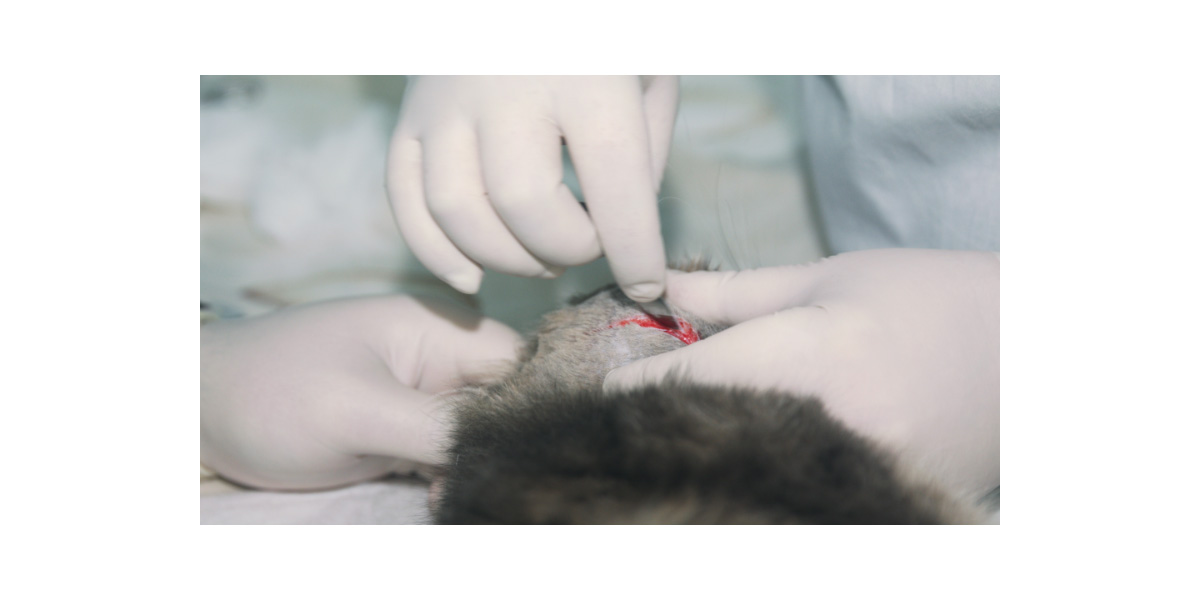Mast Cell Tumors in Dogs and Cats
Doctor of Veterinary Medicine

While efforts are made to answer all questions as quickly as possible, if an immediate answer is required or if your pet is in need of urgent or emergency care, contact your pet's veterinarian immediately.
Doctor of Veterinary Medicine

You will receive an answer from Dr. Lindsay and our vet/tech team as soon as possible, usually the same day.
All answers are provided for informational or educational purposes only, and are intended to be a supplement to, and not a substitute for, the expertise and professional judgment of your pet's veterinarian.
It may be necessary to consult your pet's veterinarian regarding the applicability of any opinions or recommendations with respect to your pet's symptoms or medical condition.
CloseDoctor of Veterinary Medicine

An error has occurred, please reload the page and try again.
CloseDoctor of Veterinary Medicine

While efforts are made to answer all questions as quickly as possible, if an immediate answer is required or if your pet is in need of urgent or emergency care, contact your pet's veterinarian immediately.
There is no answer related to your question

What are mast cell tumors?
Mast cell tumors in dogs and cats are common skin tumors and may range from simple skin nodules to multiple, ulcerated nodules that spread to regional lymph nodes and other areas of the body. Mast cells are important cells in your pet's immune system that function in allergic and inflammatory reactions. When these cells grow abnormally, cancer in various organs may develop. These cancers are most commonly seen in the skin, digestive tract, lungs, nose, and mouth. Sometimes these cells release inflammatory chemicals that lead to a wide variety of symptoms. The presentation of these cancers may vary from benign nodules to highly malignant growths that may spread to the spleen or liver, and possibly throughout the body. These tumors may represent up to 20% of all skin tumors in dogs and cats. Internal organ involvement of the spleen and intestines is more common in cats than in dogs.
Pet breeds most likely to develop mast cell tumors
Mast cell tumors appear to be more common in Siamese cats. In dogs, mast cell tumors are common in Labrador and Golden Retrievers, Mastiffs, Boxers, Bulldogs, Pugs, Boston Terriers, Rhodesian Ridgebacks, Beagles, and Pitbull Terriers.
Key facts about mast cell tumors in dogs and cats
- Signs of pets with mast cell tumors include the appearance of nodules on physical exam, and other more generalized signs such as loss of appetite, vomiting, black tarry stools, digestive tract ulceration, and the development of edema and swelling.
- Mast cell tumors may be tentatively diagnosed by needle aspiration, but tissue biopsy is necessary to grade the tumor.
- Treatment of mast cell tumors most commonly involves surgical removal, however chemotherapy, radiation, and targeted therapies may also be used.
- Prognosis of mast cell tumors depends on tumor location, size, ease of surgical removal, and tumor grade.
Symptoms of dogs and cats with mast cell tumors
Mast cell tumors often appear as single or multiple raised lumps on your pet's skin. They may appear as wart-like nodules, soft lumps under the skin or ulcerated masses that may appear on multiple areas of the body. In cats, the head and neck are the most common areas affected, while in dogs the masses are most commonly seen on the trunk and the limbs. If the mast cells release inflammatory chemicals, other more generalized symptoms may occur including loss of appetite, digestive tract ulceration, vomiting, black stool, abdominal pain, widespread inflammation, and edema (buildup of fluid in tissues).
Diagnosis of mast cell tumors in pets
Initial CBC/chemistry blood tests and urine analysis are recommended to assess the overall health of your pet. Initial tentative diagnosis is often made by fine needle aspiration of the mass or masses. If possible, aspiration of the regional lymph nodes is done to assess if any metastasis (spread) of the cancer has occurred. Buffy coat smears may be done to determine if any cancerous mast cells are present in the circulation. An abdominal ultrasound is also frequently done to determine if any spread to the spleen or intestine has occurred. Definitive diagnosis requires a biopsy sample so that the cancer may be appropriately staged and a proper treatment regimen started. CT scans may offer additional diagnostic information, depending on the site of the primary cancer.
It is best to take your dog or cat to the veterinarian to have any unusual skin growths or lumps examined as soon as possible. The earlier a tumor is found and treated, the better the prognosis for your pet.
 Swipe
Swipe





















